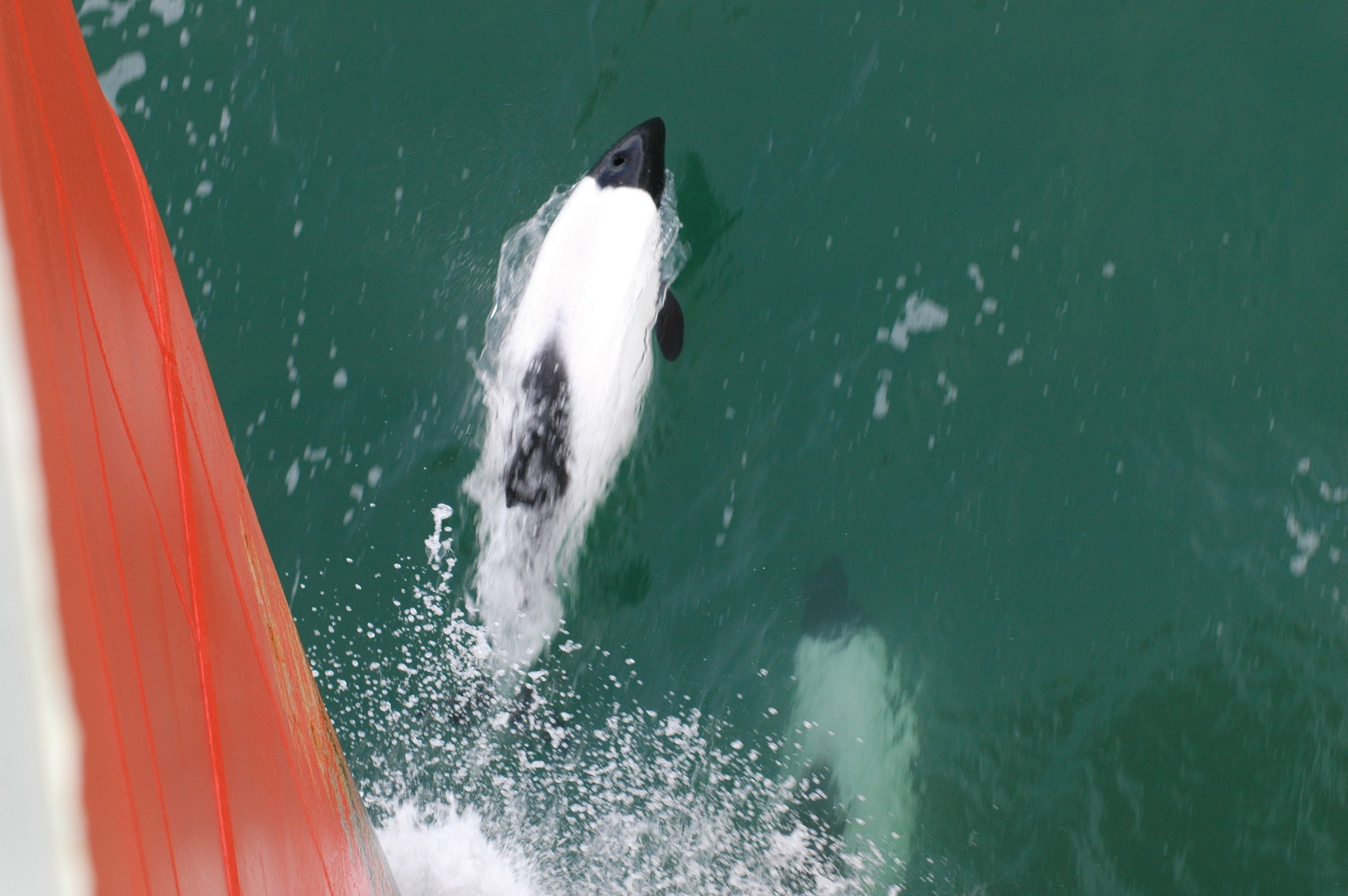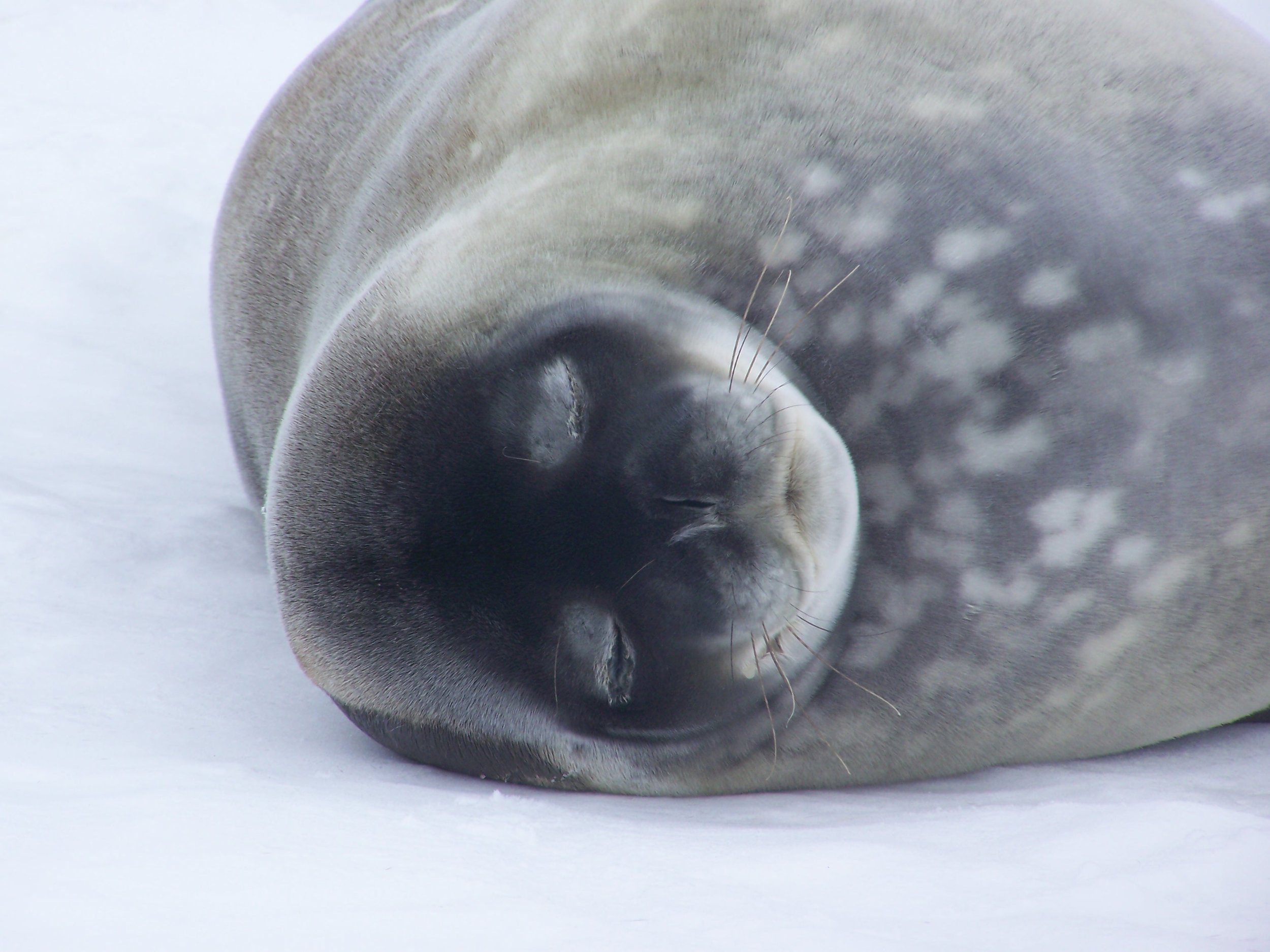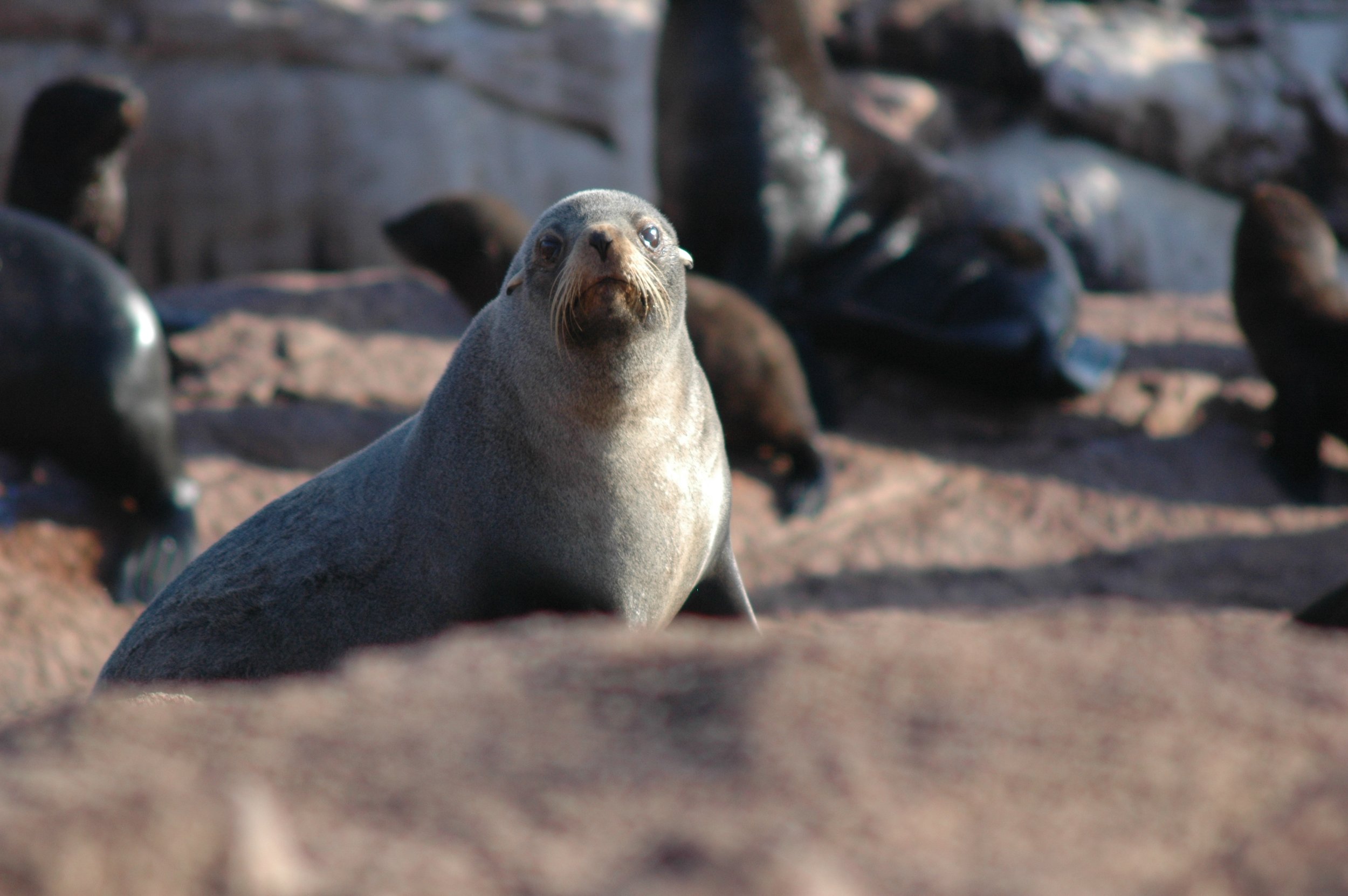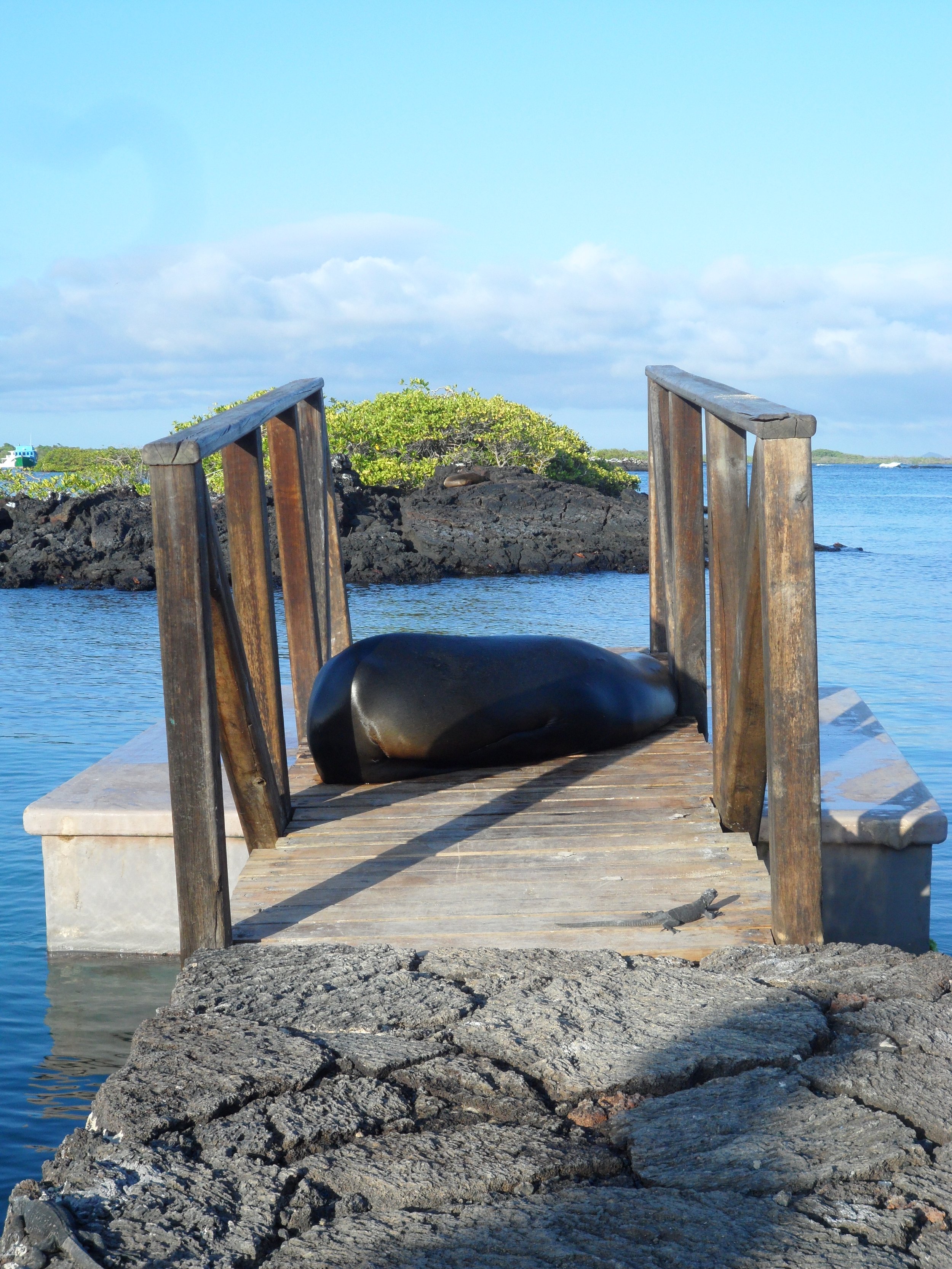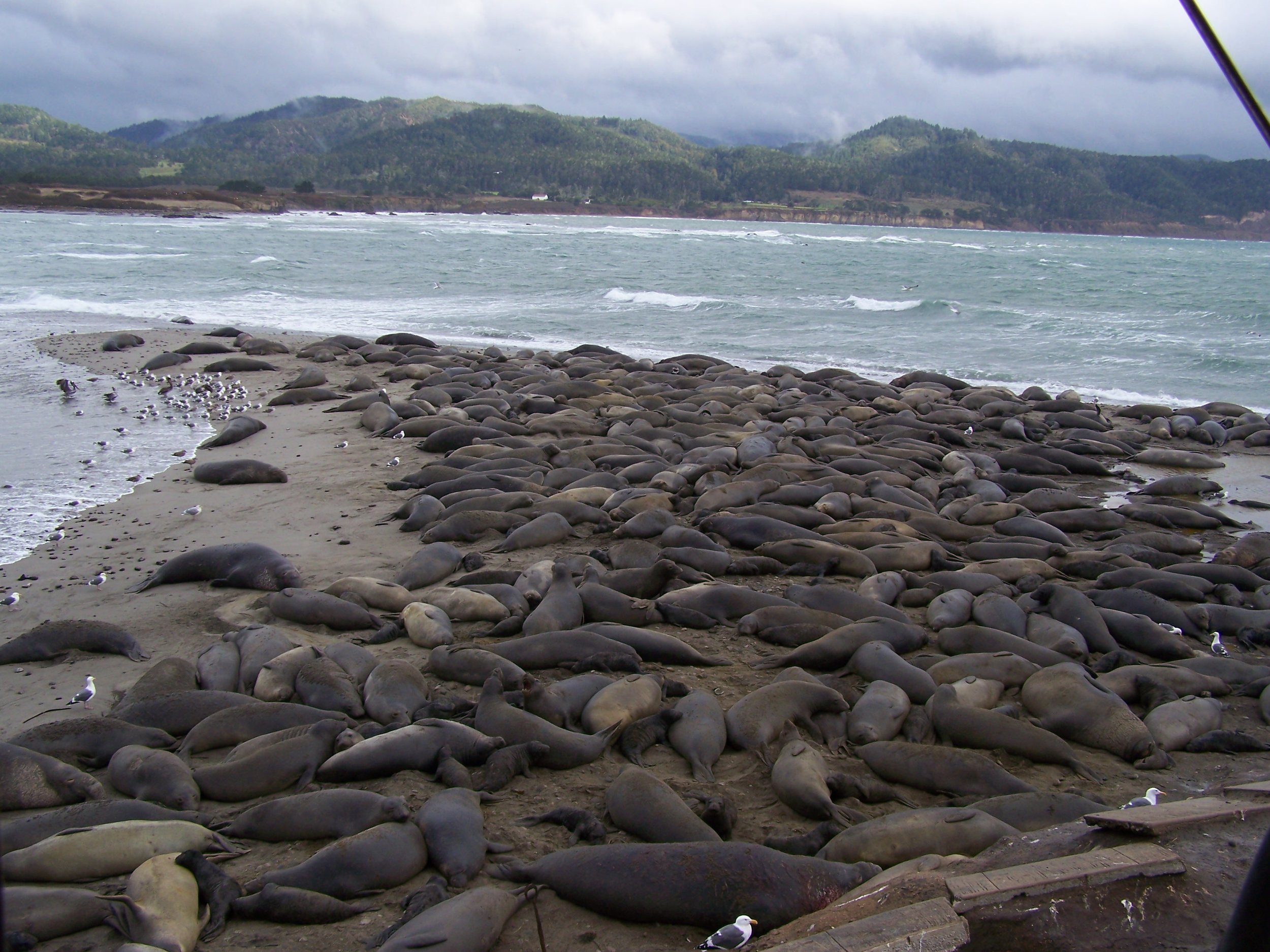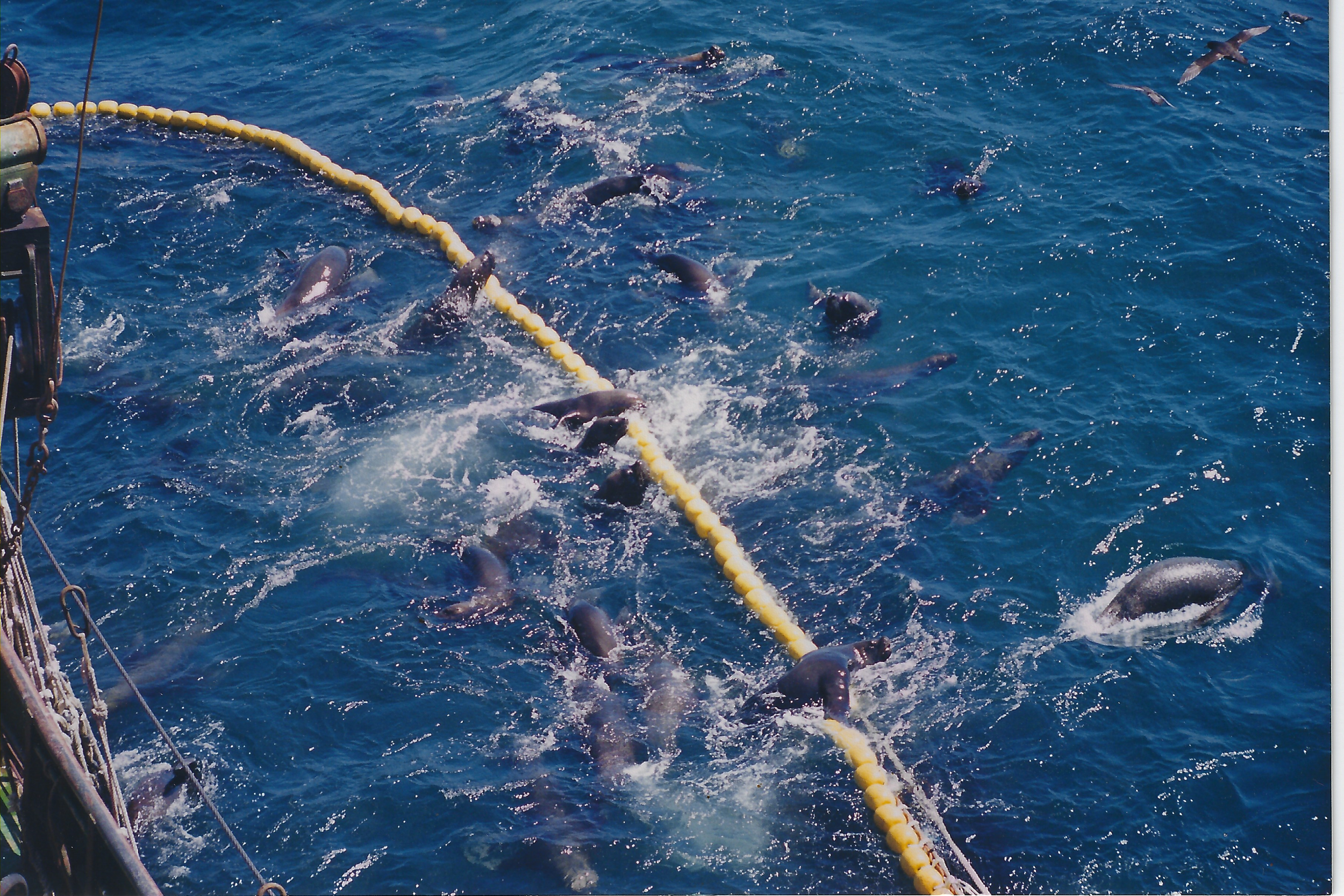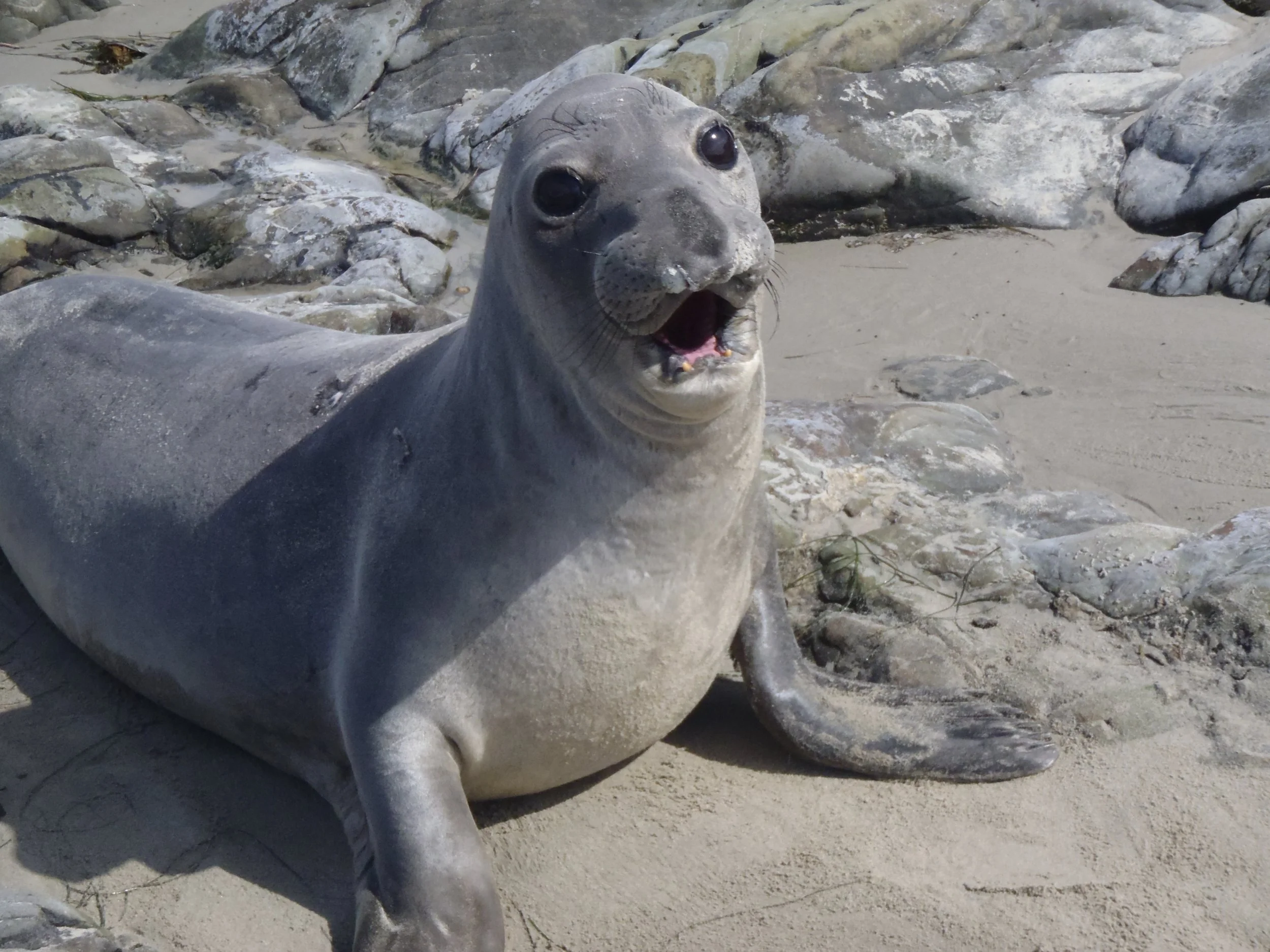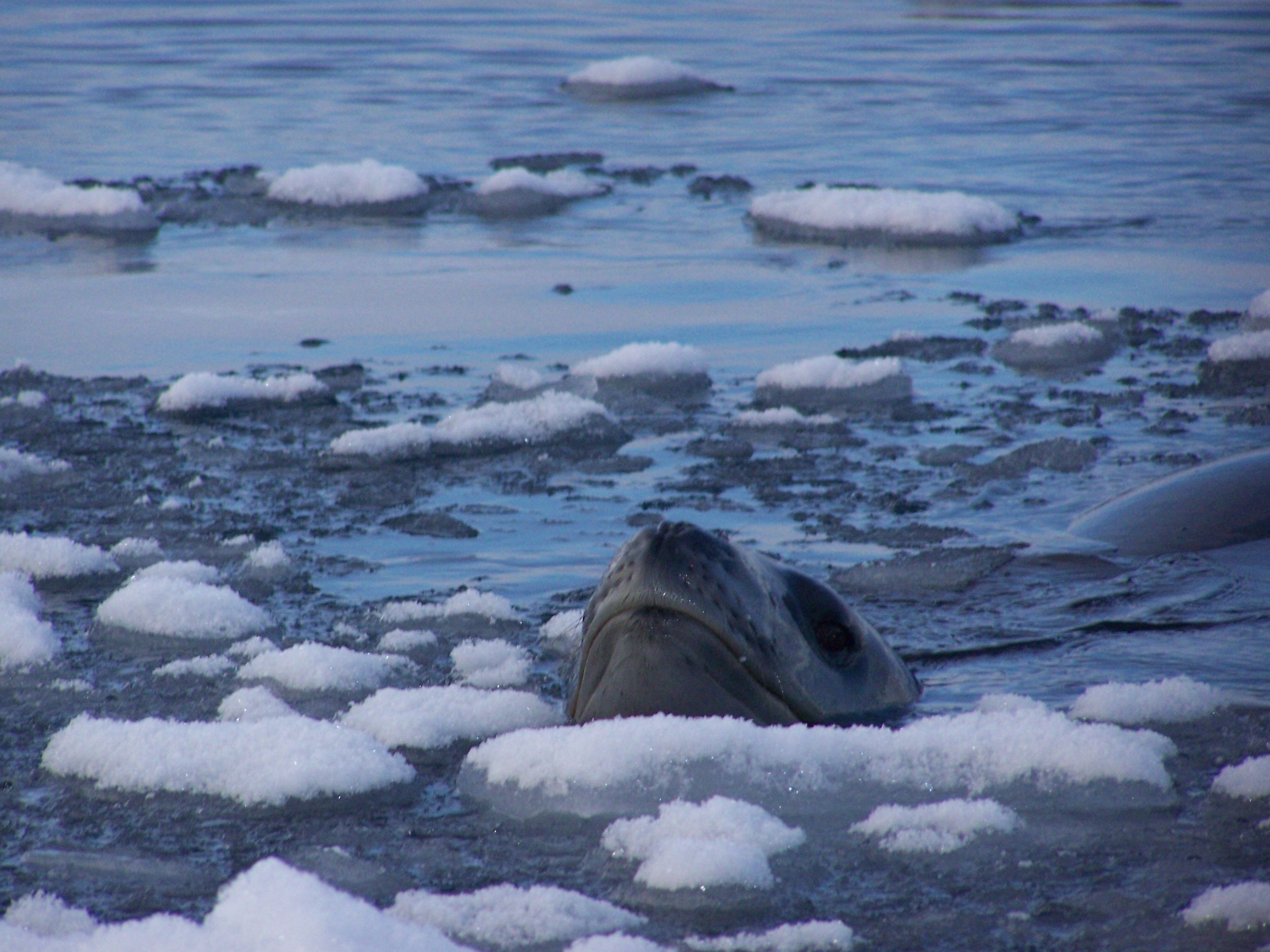Two fully funded PhD projects in our lab - please share widely
We are offering two fully funded PhD projects on the trophic ecology of marine mammals at the University of Exeter, Penryn campus, starting in the autumn 2023. Please, make sure to contact me if you have any questions or want to know more details about the projects. You can email me at: L.Huckstadt [at] exeter.ac.uk
Project 1:
Understanding the effects of rapid environmental change on the ecology of a key Southern Ocean predator, the Antarctic fur seal
Lead Supervisor: Dr Luis Huckstadt (University of Exeter, Penryn Campus, Penryn).
Additional Supervisors: Dr Jaume Forcada (British Antarctic Survey), Dr Stuart Bearhop (University of Exeter), Dr Richard Sabin (Natural History Museum, London), Dr Sally Thorpe (British Antarctic Survey).
This project will investigate the differences in the foraging ecology and patterns of habitat utilisation of Antarctic fur seals across a latitudinal gradient across the Polar Front (South Georgia and South Shetland Islands), as well as build models to project future changes as the environment continues to change. Atmospheric, oceanographic, and sea ice conditions in this region of the Southern Ocean (western Antarctic Peninsula/Drake Passage/Scotia Sea) are rapidly shifting because of human-induced Global Climate Change and local environmental processes. Because the ecology of Antarctic fur seals is tightly linked to the population of their dominant prey, the Antarctic krill, this study will help anticipate how this important prey and the entire krill-dependent community of large predators (whales, penguins, and seals) will respond to the projected environmental changes. Further, ecological historical data from museum specimens provide a unique opportunity to detect past and project future changes in the ecology of this conspicuous Antarctic mesopredator over multiple decades.
For details, please visit https://www.exeter.ac.uk/study/funding/award/?id=4596
Project 2:
Developing a novel system to monitor the status of coastal ecosystems in South West England using a complementary approach: from remote sensing to marine top predators
Lead Supervisor: Dr Luis Huckstadt (University of Exeter, Penryn Campus, Penryn).
Additional Supervisors: Dr Lauren Biermann (Plymouth Marine Laboratory), Dr Simon Ingram (University of Plymouth), Dr Stuart Bearhop (University of Exeter), Ruth Williams (Cornwall Wildlife Trust), and Rob Deaville (Cetacean Strandings Investigation Programme (CSIP) at the Zoological Society of London).
Marine top predators have long been proposed to have the potential to serve as ‘sentinel species’ yet most of our efforts to gather ecosystem-level information from marine top predators remain limited to linking variability in individual success and mortality rates to shifts in the ecosystem productivity regime. This is likely due to the limited understanding that we have of the role of marine top predators in marine biogeochemical cycles, transfer of biomass, patterns of biological productivity, and nutrient fluxes. We propose to develop an ecological monitoring system of the coastal marine ecosystem in South West England by combining approaches: bottom-up (remote sensing) and top-down (biogeochemical markers in marine top predators). By combining these two perspectives of ecosystem monitoring, we will gain a better understanding of how changes at the base of the ecosystem are dispersed through the trophic web until they reach top predators. We will be able to determine the sources and pathways of carbon that support the populations of pelagic fish and marine predators (trophic fluxes), allowing us to empirically link a particular perturbation in the area with the components of the ecosystem that might be affected (e.g.: the effects of temperature anomalies or Harmful Algal Blooms (HABs) on fish stocks and marine predators).
Because we are aiming at obtaining a better ecological understanding of mid-trophic species by using this combined monitoring approach, this project will have a direct effect on ecosystem and fisheries management, improving our ability to make better decisions about fishing stocks and other human economic activities in the area that depend on the marine ecosystem.
For details, please visit https://www.plymouth.ac.uk/student-life/your-studies/research-degrees/centre-for-doctoral-training-in-sustainable-management-of-uk-marine-resources/study
The first quarantine
Since I am the only person in our crew that does not live in the US, I had to fly 4 days earlier than the rest because of the strict COVID19 protocol that NSF is enforcing to keep Antarctica SarsCoV-2 free. A small sacrifice that is about to change as everybody else arrives tomorrow (yay!). I mean, we’ll still be in quarantine in individual rooms, but at least I won’t be the only one.
Quarantine these three days has been about sleeping a lot (getting over the jet lag), watching lots of TV (enjoying several nature documentaries) and working on things that are way overdue. There is not much to do as we are staying at a hotel at the San Francisco airport, and the view from my room is the uninspiring network of freeways in front of SFO (can’t even see the planes landing/taking off ). There’s also no real chance to enjoy a bit of greenery outside, as there is none. But the room is pretty spacious and comfortable, so it’s not really bad at all!
View from 30,000 ft above the sea ice between Greenland and Canada. Photo by Luis Huckstadt
The flight between London and San Francisco was pretty good, and I had the opportunity to fly over Greenland and Hudson Bay in NE Canada, areas which, just like the western Antarctic Peninsula, are experiencing incredible high warming rates due to human-caused climate change. The sea ice between Canada and Greenland has already started breaking up. This is the time of the year when pack ice Arctic seals, like the hooded seal, are breeding (giving birth to their pups and mating), which heavily depends on the availability of sea ice for them to haul-out. So, the disappearance of sea ice will dramatically affect the success of these species, among many other changes caused by the accelerated warming due to human activities. Crabeater seals, along with leopard, Weddell and Ross seals in Antarctica, are also “ice seals” and they are been affected by climate change just like their relatives in the Arctic.
Crabeater seals hauled out on an ice floe. Photo by Logan Pallin
Our team, B-038-N, is heading to Antarctica precisely to study how the change in environmental conditions due to climate change, is affecting crabeater seals. We will be studying their at-sea distribution, feeding behaviour, physiological status, and ultimately their population, to better understand how the entire ecosystem is responding to this unprecedented environmental change. Tune in to read more reports from the field and learn with us about the crabeater seals and the Antarctic marine ecosystem!
The long journey begins
Turns out, after 4 months in South Western England, the weather is actually quite nice. As in it’s not raining and the temperature varies between 13-15 °C, which doesn’t sound like much but it’s resulted in a large proportion of the population displaying their pale legs wearing shorts (including me). And what do I do? I’m on a train station heading to Antarctica. It’s the beginning of winter down there folks!
Being the only member of a crew non-US based, I have to comply with extra quarantine. But that’s only 4 extra days . Everyone else will join me at a hotel in San Francisco where we will start our first quarantine. Then we’ll fly to Chile where we’ll be in yet another quarantine for two weeks before we sail to Antarctica to play with seals.
Why so worried about COVID 19, you ask? Well, Antarctica is free of covid and we are doing every possible effort to keep it that way. So yes, during the next 3-4 weeks I’ll spend a lot of time by myself locked in a hotel room, but that’s just a minor inconvenience for the amazing opportunity that we are about to have.
Why are we going to Antarctica? We are heading “to the ice” to investigate the impact of climate change on the ecology and physiology of crabeater seals, the most abundant species of seal in the world and a highly specialized predator of Antarctic krill.
Make sure you keep checking this blog and follow us on Twitter, Facebook, Instagram and TikTok, with the handle @luishuckstadt
Turns out, flying light is not a concept I’m familiar with. Although this time I’m bringing a lot of gear and instruments for our field season
Potential Ph.D. and PostDoc opportunities
As an immigrant scientist, ex-soft money researcher (until very recently), and now new PI, I am strongly committed to supporting the community of Early Career Professionals who are passionate about marine ecology and conservation, with particular emphasis on marine top predators, polar ecosystems and regional and local issues (particularly in Southwest England), including the impacts of anthropogenic activities (from climate change to fisheries).
Our goal is to establish a robust group of excellent marine scientists in beautiful Cornwall, England, working on several topics relevant to air-breathing marine predators including (but not limited to):
Spatial ecology
Trophic ecology
Ecophysiology
Trophic webs and fluxes of energy
Fisheries interactions
Historical ecology
Marine conservation
If you are interested in continuing your career investigating these and other topics as a Ph.D. student or PostDoc, and want to do exciting science focused on marine top predators where you’ll have the opportunity to use powerful and advanced analytical techniques (e.g., biologging, stable isotope analyses, endocrinology, Unoccupied Aerial Vehicles, among others), I’ll be delighted to discuss potential opportunities, ongoing and future projects, and funding mechanisms. You can contact me at L.Huckstadt [at] exeter.ac.uk or just click on the icon in the top right corner of this page. Members of underrepresented groups in marine sciences are particularly encouraged to contact me. All are welcome.
PhD Graduate Assistantship in Marine Predator Physiological Ecology at UNC Wilmington
Agency
University of North Carolina, Wilmington – Department of Biology and Marine Biology
Location
Wilmington, North Carolina
Job Category
Graduate Assistantship
Salary
TBD – Competitive Graduate Teaching Assistantship and Research Assistantships
Start Date
01/6/2022
Last Date to Apply
10/15/2021 (encouraged to apply earlier for 1st consideration)
Website
https://uncw.edu/bio/Faculty_Tift.html
Description
The UNCW Comparative Physiology Laboratory is seeking a highly motivated, responsible, and independent individual that is interested in pursuing a PhD position in physiological ecology of polar marine top predators in the Department of Biology and Marine Biology, University of North Carolina Wilmington (UNCW), as part of the NSF-funded project ‘Effects of a Changing Climate on the Habitat Utilization, Foraging Ecology and Distribution of Crabeater Seals’ (more information here). This project is a collaborative effort between UNCW, University of California Santa Cruz (UCSC), and the British Antarctic Survey.
We are looking for a student with excellent quantitative and analytical skills, interested in foraging ecology, diving physiology, and behavior of marine predators. Expertise programming in R, Matlab, and/or python is highly desirable. Experience working with wild pinnipeds, stable isotopes, and biologging data (satellite telemetry) are advantageous. The successful applicant will ideally also have experience with field work in extreme environments, particularly polar environments.
Ideal start date will be early January 2022. The student will earn a Ph.D. in Integrative, Comparative, and Marine Biology at the University of North Carolina, Wilmington (Wilmington, NC, USA). Student support will be provided via a combination of teaching assistantships, research assistantships, and tuition waivers. The student will also be strongly encouraged to pursue independent grants and fellowships. The supervision team includes Dr. Michael Tift (UNCW), and Dr. Luis Huckstadt (UCSC).
University of North Carolina, Wilmington provides an engaged and dynamic academic experience, with over 2,200 graduate students and over 16,700 students in total enrollment. UNCW is an affirmative action and equal opportunity employer that promotes achievement and success for all persons. The campus is located on the southeast coast of North Carolina, less than 10 miles from the Atlantic Ocean. UNCW has a separate Center for Marine Science which is approximately 7 miles from main campus and sits directly on the Intracoastal Waterway of the Atlantic Ocean.
Qualifications
Applicants must have a strong academic background and a B.S. degree focused on ecology, physiology, wildlife conservation, or closely related field. Applicants should have proven laboratory experience that is highlighted in their letters of recommendation. A background in stable isotopes and computer programming is desired. Students are expected to conduct their thesis/dissertation research project and complete required course work. Excellent verbal and written English communication skills are essential. Interested applicants should review material regarding the UNCW Graduate Program (https://uncw.edu/bio/graduate.html) and the UNCW Comparative Physiology Lab under the supervision of Dr. Michael Tift (https://uncw.edu/bio/Faculty_Tift.html)
If you’re interested in applying, first send a single document (Word or PDF) to Dr. Michael Tift (tiftm@uncw.edu) and Dr. Luis Huckstadt (lahuckst@ucsc.edu) that contains the following:
1) Contact information for three (3) references that can speak to your expertise and skills
2) Current CV (which includes undergraduate and/or graduate GPA, research skills, publications, and relevant work experience)
3) Unofficial transcripts (undergraduate and graduate, if available)
4) 1-2 pg cover letter that highlights your research interests, research background, future career directions, and hypothesis driven research questions related to the following;
a. The effects of climate change on marine top predators.
b. Foraging ecology of marine top predators.
c. Physiology and health of marine top predators, with emphasis on polar marine mammals.
If you would like to apply to the graduate program at UNC Wilmington, please use the following link to fill out an official application (https://www.uncw.edu/gradschool/admissions/index.html).
The deadline to apply for Spring Semester of 2022 is October 15th, 2021 at midnight EST. However, candidates are encouraged to apply early as review of applications will begin immediately and continue until a suitable candidate is identified.
Funding
Pinnipedology
I was recently featured on the science/comedy podcast “Ologies”. A whole hour and a half dedicated to seals, sea lions, fur seals, and walruses. You can find out more about the episode here, or find the episode on Apple Podcasts, Spotify, Stitcher, or wherever you get your podcasts. Enjoy!





